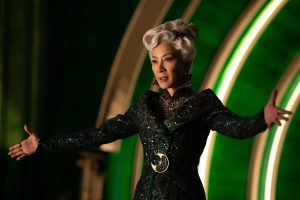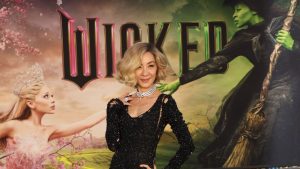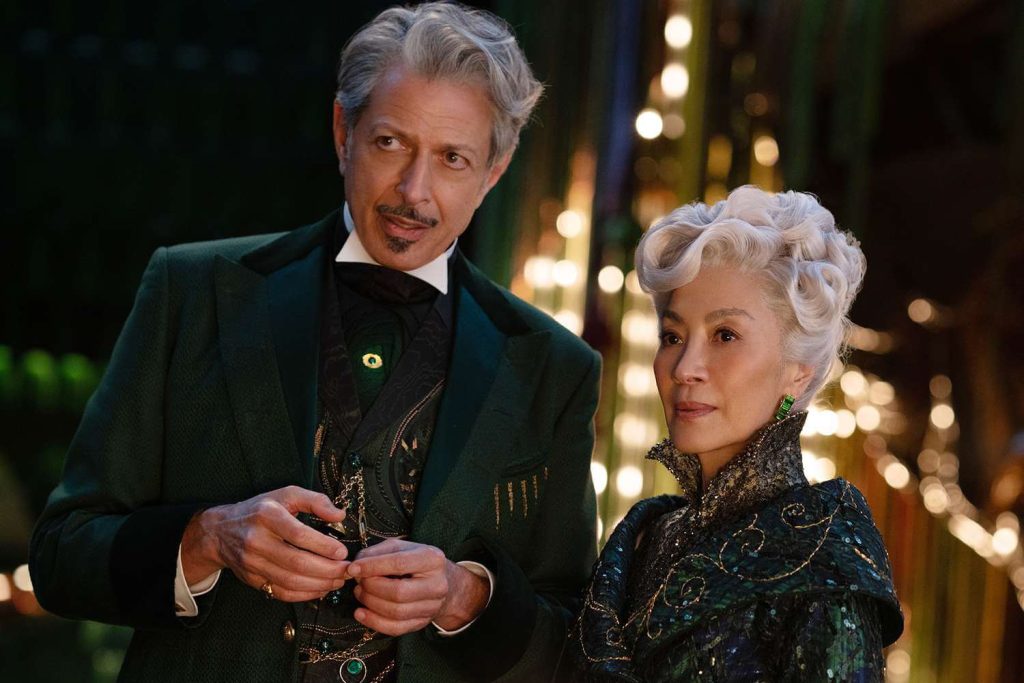World news
Unveiling the Enigmatic Alliance: The Intricate Relationship Between the Wizard and Madame Morrible in ‘Wicked’
In the captivating universe of Wicked, filled with moral ambiguity, magical politics, and alternate perspectives on a familiar fantasy land, the characters of the Wizard and Madame Morrible stand as pillars of cunning manipulation and subtle dominance. Their relationship—one built on power, persuasion, and perhaps something more—has long intrigued fans of both the musical and the original book. As the story of Elphaba unfolds, the presence and impact of these two figures becomes increasingly significant. Yet, beneath their official alliance, there lingers a cloud of mystery: could their past be more personal than it appears?
Origins of the Alliance: Ambition and Opportunity
From the beginning, Madame Morrible and the Wizard are united by one common pursuit—control. In Gregory Maguire’s novel, Wicked: The Life and Times of the Wicked Witch of the West, Morrible first appears as a headmistress at Shiz University, a role that allows her to shape the minds and futures of some of the most powerful young talents in Oz. Her encounter with Elphaba is pivotal—she immediately sees Elphaba’s raw magical potential and seeks to align that power with the Wizard’s authoritarian goals.
The Wizard, a man who arrived in Oz from another world with no inherent magic but with a flair for showmanship and deception, relies heavily on allies who can help him solidify his place as the supreme ruler. Morrible becomes not just a supporter, but a key component of his rise and maintenance of power. Their relationship is built on a balance: he offers her prestige and influence, and she offers him sorcery, strategy, and unwavering loyalty.
This mutually beneficial alliance is the foundation of their power structure in Oz. Both characters understand how to leverage fear, illusion, and charisma to manipulate the public and eliminate dissent. But it’s not just politics that binds them—there’s something in the way they anticipate each other’s moves and fill in each other’s blanks that hints at a deeper understanding.

The Dynamics of Power: Manipulation and Control
In both the book and stage musical, Morrible is portrayed as more than just a secondary villain. Her capacity for manipulation is unmatched—she doesn’t just enforce laws; she crafts the propaganda that supports them. As press secretary to the Wizard in the musical, she controls the narrative, shaping public perception and twisting truths to fit their regime’s agenda.
This dynamic makes her the Wizard’s equal in influence, if not in title. While he rules with a theatrical flair, it is often Morrible pulling the strings behind the scenes. She weaponizes language, turning rumors into reality and truth into treason. The Wizard may be the face of leadership, but Morrible is its voice—and its bite.
Their collaboration reflects the dangers of unchecked power and the chilling efficiency of propaganda. The duo operates in tandem, not out of affection, but out of a shared belief in order, control, and the necessity of suppressing dissent. Elphaba, as a force of disruption, becomes their common enemy—not because she’s inherently wicked, but because she threatens the illusion they’ve carefully constructed.
Speculations on a Personal Relationship: Subtext and Interpretations
What adds even more intrigue to this political alliance is the subtle, often unspoken suggestion that Morrible and the Wizard may have once shared something more personal. In the 2024 film adaptation of Wicked, this notion is played with more directly. Jeff Goldblum (the Wizard) and Michelle Yeoh (Madame Morrible) hinted in interviews that their characters’ connection goes deeper than mere cooperation.
Goldblum, always sly with his words, playfully questioned, “What did go on with these two?”—a remark that leaves the door open to speculation. Yeoh added more fuel to the fire by suggesting that Morrible may have played a formative role in shaping the Wizard’s public image, using her intelligence and intuition to mold him into the figurehead of fear he would become.
This subtext—while never explicitly confirmed—adds rich depth to their scenes together. It paints a portrait of two individuals who may once have shared dreams, perhaps even a bond beyond the political. Their chemistry, especially as portrayed in the film, exudes familiarity, almost comfort, as if they’ve walked many roads together before arriving at this cold, controlling crossroads. Could their alliance be the residue of a past relationship now buried beneath ambition and strategy?

Impact on Elphaba’s Journey: Antagonism and Catalyst
Regardless of the nature of their past, there is no doubt that the Wizard and Morrible play crucial roles in shaping Elphaba’s transformation. Morrible, in particular, is a direct influence on Elphaba’s path—from her early days at Shiz, where she is led to believe she might use her powers for good, to the crushing realization that she’s being manipulated as a tool for tyranny.
The betrayal Elphaba feels when she discovers Morrible’s true intentions—and the Wizard’s complicity—marks a turning point. No longer willing to participate in their system of lies, Elphaba becomes a renegade, labeled “wicked” simply because she refuses to conform. In this way, the Wizard and Morrible do not merely oppose Elphaba; they forge her. Without their deceptions and abuses of power, Elphaba might never have become the symbol of rebellion she is known as.
Their antagonism also represents broader themes: the corruption of institutions, the perversion of truth, and the personal toll of choosing righteousness over compliance. Elphaba’s fight is not just against the Wizard, but against the machinery Morrible embodies—a machinery she once believed in.
Legacy and Interpretations: Evolving Perceptions
The enduring fascination with the Wizard and Madame Morrible’s relationship lies in its ambiguity. Over time, as new adaptations emerge, so too do new interpretations. Their connection—political, psychological, and possibly romantic—offers a mirror to real-world power structures and the often-blurred lines between personal allegiance and public ambition.
The upcoming Wicked: Part Two film, slated for release in late 2025, may expand on these dynamics. With audience interest piqued and actors openly teasing the depth of their characters’ past, it’s likely we’ll see new shades of their relationship that shed light on what truly brought them together—and what ultimately pulled them apart.
Whether viewed as mere allies or former lovers-turned-co-conspirators, their story adds a compelling undercurrent to the grand narrative of Wicked. It reminds us that villains are rarely born—they are shaped, often by other villains, often by those they once trusted.
In conclusion, the bond between the Wizard and Madame Morrible is one of the most enigmatic and layered relationships in the Wicked universe. Built on manipulation, sustained by power, and hinted to be haunted by history, their alliance is both a source of tension and fascination. As the curtain rises on each new telling of this story, fans continue to explore what lies beneath their formal facades. Were they ever more than partners in propaganda? And if so, was it ambition—or heartbreak—that drove them to become the architects of Oz’s greatest tragedy? Only time—and perhaps another chapter—will tell.
From customtrendygoods

